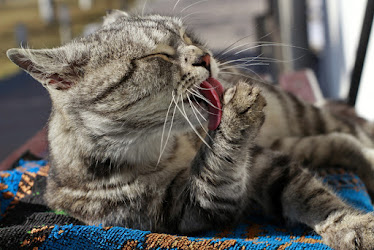Cat Behavior Issues And Solutions
Cats, known for their inscrutable personas and autonomous demeanor, have garnered adoration as companions in numerous households globally. Nonetheless, even the most ardent cat guardian might confront behavioral challenges intermittently. Grasping the underlying causes of these behaviors and enacting efficacious remedies is pivotal for sustaining a harmonious bond with your feline comrade.
Hostility
Hostility in felines can materialize in assorted manners, encompassing hissing, pawing, and even gnawing. It is imperative to discern the stimuli that incite aggressive conduct in your cat. Prevalent triggers for hostility comprise trepidation, territoriality, and redirected animosity.
Rectifying Hostility
To rectify hostility in your cat, forge a secure and pacifying milieu, furnish mental and physical enrichment, and seek expert counsel if requisite. Furthermore, refrain from reprimanding your cat for a hostile demeanor as it can exacerbate the predicament.
Inappropriate Clawing
Clawing is an innate behavior for cats, serving to hone claws and demarcate territory. Nonetheless, when felines claw furniture or alternative unsuitable surfaces, it can metamorphose into a nuisance for pet proprietors.
Administering Clawing Conduct
Provide your cat with suitable clawing posts or pads to administer incorrect clawing, and use deterrents such as double-sided sticky or citrus-scented sprays to prevent them from scratching furnishings. Regular nail cutting can also help to lessen the impairment caused by scratching.
Marking with Spraying or Urine
Spraying, or urine marking, is habitual conduct in unspayed or unneutered cats and functions as a form of communication and territory delineation. However, when felines spray indoors, it can culminate in unpleasant aromas and exasperation for proprietors.
Precluding Urine Marking
To preclude urine marking, spaying or neutering your cat is imperative, as it can significantly diminish the likelihood of this conduct. Additionally, ascertain your cat has access to pristine litter boxes stationed in tranquil, effortlessly accessible areas of the domicile. Promptly cleansing soiled areas with enzymatic detergents can aid in dissuading recurrent marking.
Excessive Vocalization
Excessive vocalization can indicate various latent issues, encompassing hunger, stress, or medical maladies. Comprehending the rationales behind your cat's vocalizations is crucial for addressing this conduct efficaciously.
Rectifying Excessive Vocalization
To rectify excessive vocalization, ensure your cat's fundamental requisites, such as sustenance, hydration, and litter, are fulfilled. Participate in interactive gaming sessions to provide mental stimulation and assuage ennui. If excessive vocalization persists, confer with your veterinarian to exclude any underlying health complications.















No comments:
Post a Comment